
This lesson will help students understand pronouns.
- Subject:
- English Language Arts
- Material Type:
- Homework/Assignment
- Lesson
- Student Guide
- Syllabus
- Author:
- Michelle Jarrell
- Date Added:
- 01/20/2024

This lesson will help students understand pronouns.

This collection of OER was curated as part of an OER Background Research mini-grant to locate and evaluate resources for a college-level music appreciation course.
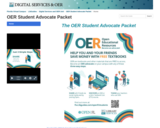
Student advocacy for open educational resources (OER) and affordable course content is essential, meaningful work that can make huge impacts on OER programs. This quick, actionable messaging for students can fit into their packed schedules. Florida Virtual Campus (FLVC) Library Services developed this Student Advocate Packet, outlining three steps students can take that day to move their campus communities toward using open and affordable course content. This packet also contains further steps students can take if they have the time.
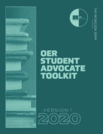
This toolkit was created by OER student leaders in the CCC and CSU systems. The toolkit's purpose is to motivate students to get involved in OER advocacy and the Open Education movement, as well as make it known that students can make a difference in their education. Education costs can be cut to a fraction of the price with OER, which would allow for more students to be able to access knowledge and higher education. While this toolkit contains some examples and suggestions specific to California institutions, it can still be helpful for all college students. Thanks to the Michelson 20MM Foundation's financial support students were paid for their work and contributions in creating this document, as well as presenting at conferences.
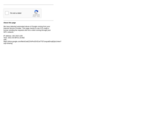
OER and Public Domain Resource List for Business Administration: Process Improvement
BA 584 Business Administration: Process Improvement
Reviews the theory and practice of quality improvement, with an emphasis on modeling of business processes, development of decision support tools, and performance measurement.
![OREGON MATH STANDARDS (2021): [K.OA]](https://img.oercommons.org/160x134/oercommons/media/courseware/lesson/image/13138_ODE_Math_Logo_2018-H_color_BvjqVNy.png)
The intent of clarifying statements is to provide additional guidance for educators to communicate the intent of the standard to support the future development of curricular resources and assessments aligned to the 2021 math standards. Clarifying statements can be in the form of succinct sentences or paragraphs that attend to one of four types of clarifications: (1) Student Experiences; (2) Examples; (3) Boundaries; and (4) Connection to Math Practices.

The Open Scholarship Knowledge Base team is dedicated to providing a welcoming and supportive environment for all people, regardless of background or identity. Before joining or contributing to the OSKB community, individuals must agree to uphold and report all violations to this Code of Conduct.

Each OSKB Group will have Group Admininistrators. Group Administrators act as Editors in the OSKB, and have related roles and responsibilities. This document is an evolving document maintained by members of the OSKB Editorial Subcommittee to provide transparency on how the editorial process works, who is responsible for what, and how editorial conflicts or administrative issues may be resolved.
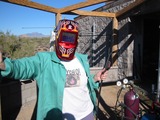
Template for creating an Experiential Module on Manufacturing/Welding Example title: Beginners Guide to the Pitfalls of Torching - Over Welds
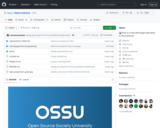
This is a path for those of you who want to complete the Data Science undergraduate curriculum on your own time, for free, with courses from the best universities in the World. In our curriculum, we give preference to MOOC (Massive Open Online Course) style courses because these courses were created with our style of learning in mind. OSSU Data Science uses the report Curriculum Guidelines for Undergraduate Programs in Data Science (https://www.amstat.org/asa/files/pdfs/EDU-DataScienceGuidelines.pdf) as our guide for course recommendation.
It is possible to finish within about 2 years if you plan carefully and devote roughly 20 hours/week to your studies. Learners can use this spreadsheet (linked in resource) to estimate their end date. Make a copy and input your start date and expected hours per week in the Timeline sheet. As you work through courses you can enter your actual course completion dates in the Curriculum Data sheet and get updated completion estimates.
Python and R are heavily used in Data Science community and our courses teach you both. Remember, the important thing for each course is to internalize the core concepts and to be able to use them with whatever tool (programming language) that you wish.
The Data Science curriculum assumes the student has taken high school math and statistics.
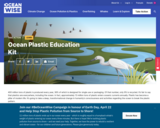
400 million tons of plastic is produced every year, 36% of which is designed for single use or packaging. Of that number, only 9% is recycled. It’s fair to say that plastics are everywhere, including the ocean. In fact, approximately 13 million tons of plastic enters oceanic currents annually. Plastic has become a pillar of modern life. It’s going to take a deep, transformational change in humanity’s consciousness and activities regarding the ocean to break the plastic pattern.
We believe this is possible! But we need your help. By relating socio-economic and scientific concepts such as watershed and ocean currents, food chain interactions, and the greenhouse gas effect, youth will learn the history of plastic, how it transformed our consumer habits, how it harms ocean health, exacerbates the current climate crisis, and how they can protect our ocean from further plastic pollution and restore the ecosystems already affected.
Through this education kit’s activities, students will be given the knowledge, tools, and skills to break their plastic pattern and become leaders of change – and this all starts in your classroom.

This e-portfolio is an achievement portfolio for course TECH6101, MA Program SQU

Planning Your Destination at a GlanceIn this lesson, students will be required to do a variety of tasks that revolve around vacation planning. The lesson begins with an activity that elicits vacation-related vocabulary. Then students will move on to a reading exercise that will test their reading comprehension. Following this, students will participate in a role-play exercise. To conclude the lesson, students will have the chance to share their ideas and opinions about their ideal holiday destinations. With that being said, this lesson is a fun way to get to know your students!If you want additional lesson plans and support, including teachers’ notes, be sure to register for a free Off2Class account.
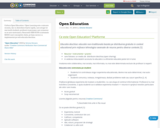
Cultura Open Education / Open Learning este o miscare recenta, dar cu dezvoltare foarte rapida, care atrage tot mai multi studenti, profesori si persoane care urmaresc sa se auto-instruiasca. Resursele OER/OCW si sistemele MOOC sunt conceptele-cheie, pe baza carora s-a implementat pe web educatia deschisa.
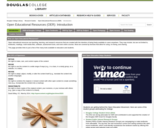
Open Education Guide at Douglas College Library
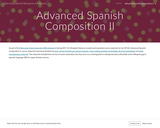
As part of the Worcester State University OER initiative in Spring 2017, Dr. Elizabeth Osborne created and translated course materials for her SP 322, Advanced Spanish Composition II, course. Materials have been divided into peer review (revisión por pares) handouts, close reading activities (actividades de lectura detallada) and other miscellaneous materials. The materials included here are by no means exhaustive, but they serve as a starting point to making education affordable and to filling the gap in Spanish-language OER for upper division courses.

Willkommen im Lehr-Lernprojekt Lehr-Lernprojekt „Grammatik und Schule im digitalen Zeitalter: durch teilnehmende Beobachtung und forschungsorientiertes Lernen den eigenen Sprachgebrauch digitaler Kommunikation sowie Vermittlungsmöglichkeiten grammatischer Strukturen untersuchen“!
Kurzbeschreibung des Projekts
„WhatsApp & Co machen Schüler*innen dumm.“ Ziel des Seminars ist es, diese Aussage durch teilnehmende Beobachtung und forschungsorientiertes Lernen zu hinterfragen. Die Untersuchung des eigenen Sprachgebrauchs liefert empirische Befunde für die Vermittlung grammatischer Strukturen im digitalen Zeitalter.
Inwiefern unterscheidet sich digitale Kommunikation von anderen Sprachregistern und wie kann grammatische Kompetenz im digitalen Zeitalter vermittelt werden? Am Ende des Semesters sollen die Teilnehmenden in der Lage sein, grammatische Strukturen anhand digitaler Daten zu beschreiben. Außerdem wissen sie, wie digitale Daten aufbereitet und ggf. annotiert werden müssen, um für sprachwissenschaftliche Zwecke weiterverwendet werden zu können. Schließlich können sie sprachwissenschaftlich gegen den Sprachverfallmythos argumentieren und haben anhand ihrer eigenen Erfahrung mit digitalen Daten gelernt, dass die Benutzung sozialer Medien die deutsche Sprache nicht gefährdet.
Projektablauf und Teilnehmende
Das Projekt wurde 2020-2021 an der Universität Leipzig von Dr.in Naomi Truan (Antragstellerin und Projektleiterin) in Zusammenarbeit mit Dennis Dressel und Sophia Böhme durchgeführt. Rückmeldungen sind herzlich willkommen! Schreiben Sie mir gerne eine E-Mail an: naomi.truan@uni-leipzig.de.
![Open For Antiracism (OFAR) [Connor's Test]](https://img.oercommons.org/160x134/oercommons/media/courseware/lesson/image/OFAR_zEOlKZo.png)
The Open for Antiracism (OFAR) Program – co-led by CCCOER and College of the Canyons – emerged as a response to the growing awareness of structural racism in our educational systems and the realization that adoption of open educational resources (OER) and open pedagogy could be transformative at institutions seeking to improve. The program is designed to give participants a workshop experience where they can better understand anti-racist teaching and how the use of OER and open pedagogy can empower them to involve students in the co-creation of an anti-racist classroom. The capstone project involves developing an action plan for incorporating OER and open pedagogy into a course being taught in the spring semester. OFAR participants are invited to remix this template to design and share their projects and plans for moving this work forward.

The Open for Antiracism (OFAR) Program – co-led by CCCOER and College of the Canyons – emerged as a response to the growing awareness of structural racism in our educational systems and the realization that adoption of open educational resources (OER) and open pedagogy could be transformative at institutions seeking to improve. The program is designed to give participants a workshop experience where they can better understand anti-racist teaching and how the use of OER and open pedagogy can empower them to involve students in the co-creation of an anti-racist classroom. The capstone project involves developing an action plan for incorporating OER and open pedagogy into a course being taught in the spring semester. OFAR participants are invited to remix this template to design and share their projects and plans for moving this work forward.
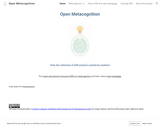
Our goals
From the beginning, this was conceived as an ongoing project. This website will be used in our courses and will continue to be developed by students. The goal is for people to learn about metacognition and its role in learning. We believe that learning can happen the most effectively when learners engage with open educational resources not just as passive consumers of information, but as active participants in meaningful knowledge creation.
Why metacognition?
Developing metacognitive awareness is shown to contribute to learning transfer, helping learners to use their knowledge and apply what they've learned in new contexts. As English teachers, we know that metacognitive awareness and the open discussion of metacognitive processes helps learners to develop and refine skills in reading, writing, and researching. Metacognition is something we all do in countless contexts, so it's something that anyone can meaningfully engage in discussing and learning.
Please join us!
We hope that other instructors will encourage their students to engage with these OER in the spirit of open pedagogy. We selected metacognition as a topic from the perspective of English teachers, knowing its integral role in working with language. We believe that metacognitive awareness is crucial to any type of learning. In particular, learners focused on study skills and college success benefit greatly from metacognitive awareness. Learners of psychology and education would also have much to gain from engaging with this topic.
If you're an instructor who would like to use this site in your courses, please email us at george.zamzow@pcc.edu